Blackouts, hyperinflation and hunger: Maduro faces re-election as Venezuela deteriorates
With sickness on the rise, soaring inflation and an infrastructure on the brink of collapse – the socialist nation is at risk of becoming a failed state
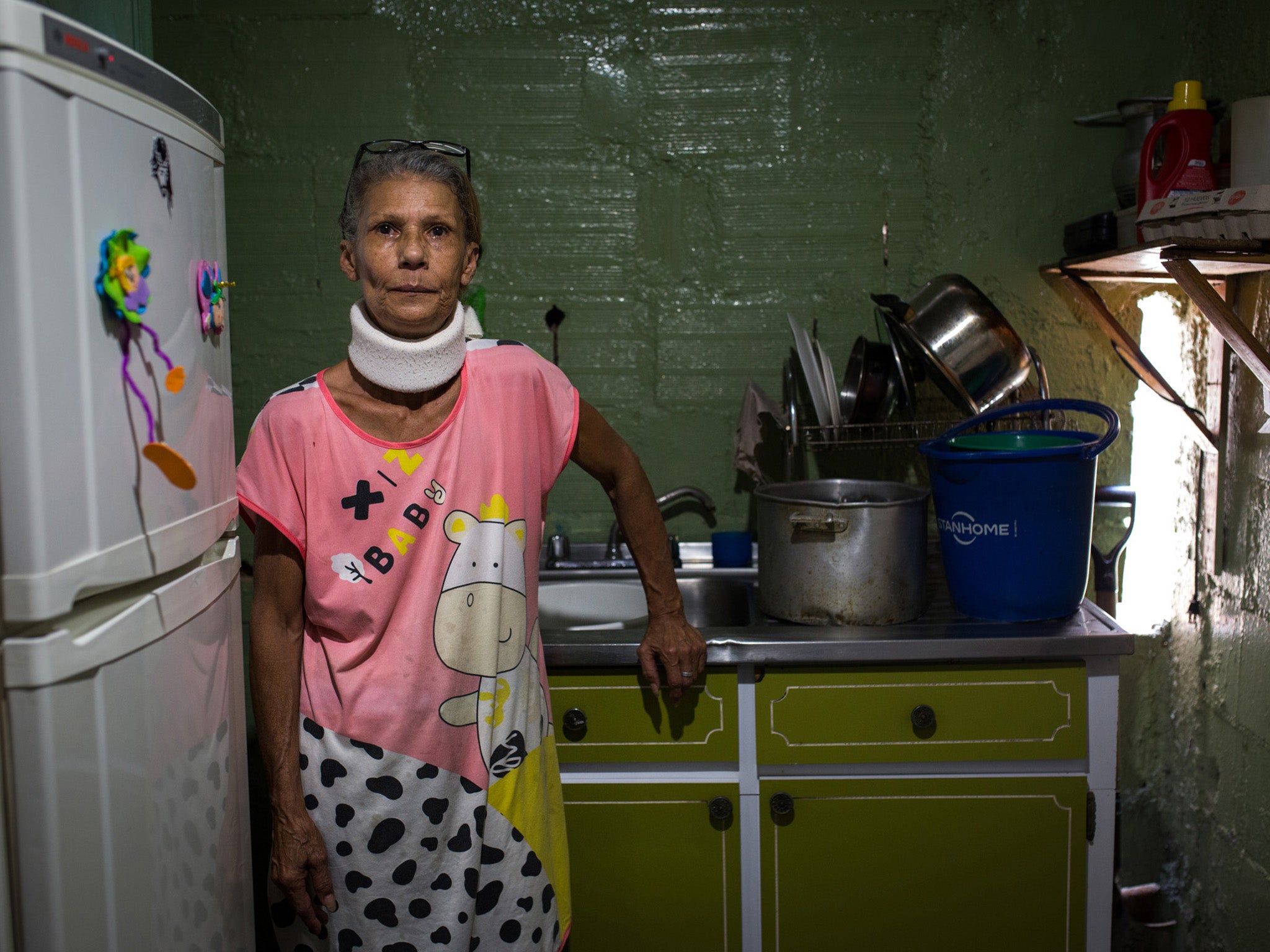
Your support helps us to tell the story
From reproductive rights to climate change to Big Tech, The Independent is on the ground when the story is developing. Whether it's investigating the financials of Elon Musk's pro-Trump PAC or producing our latest documentary, 'The A Word', which shines a light on the American women fighting for reproductive rights, we know how important it is to parse out the facts from the messaging.
At such a critical moment in US history, we need reporters on the ground. Your donation allows us to keep sending journalists to speak to both sides of the story.
The Independent is trusted by Americans across the entire political spectrum. And unlike many other quality news outlets, we choose not to lock Americans out of our reporting and analysis with paywalls. We believe quality journalism should be available to everyone, paid for by those who can afford it.
Your support makes all the difference.Venezuela’s autocratic president, Nicolas Maduro, is widely expected to win another term in elections Sunday. But he soon could face a far bigger test – maintaining his grip on a country that is fast becoming a failed state.
Since Maduro took over from Hugo Chavez – his mentor, who died in 2013 – Venezuela’s crisis has steadily intensified as a result of lower oil prices, corruption and a socialist system plagued with mismanagement. But as Maduro has sought to further consolidate power in the past 12 months, the economy, public services, security and health care have all but collapsed.
Armed gangs and Colombian guerrilla groups are operating unchecked on Venezuela’s borders. Pro-government militias are terrorising urban areas, while police stand accused of extrajudicial killings. Four of the 10 most dangerous cities in the world are now in Venezuela, according to a 2017 study by the Igarape Institute, a Brazilian think tank that studies violence.
Hundreds if not thousands of members of the armed forces are deserting, in part due to meagre rations, according to military analysts.
Power and water grids and the transportation systems are breaking down. In just the first three months of the year, Venezuela suffered over 7,000 blackouts.
Saddled with a soaring inflation rate that has put food out of reach, weakened and thin Venezuelans are falling ill. Doctors say cases of diseases once thought largely eradicated – malaria, diphtheria, measles and tuberculosis – are not only resurfacing but surging.
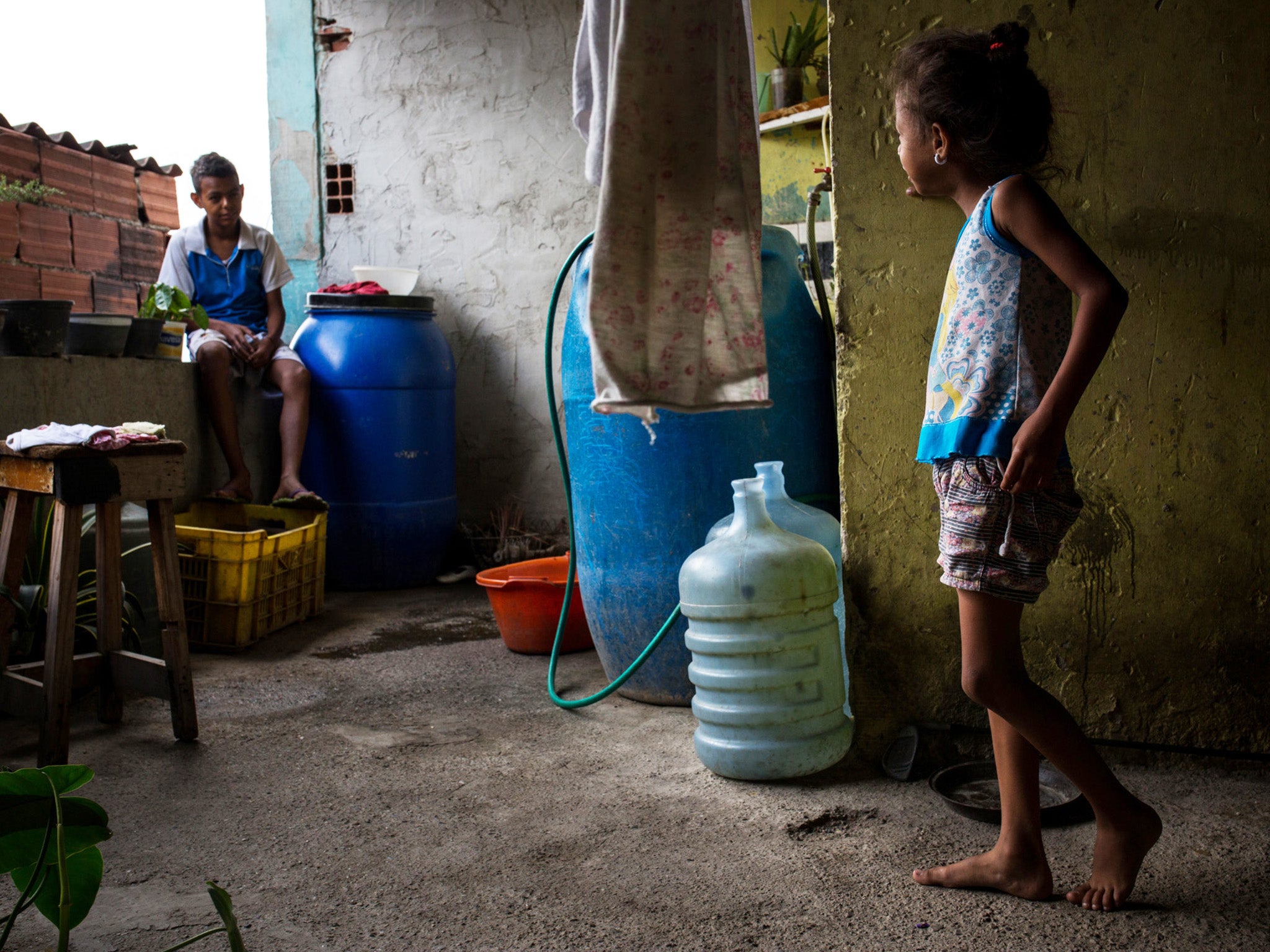
In a nation that lives off oil, production is collapsing as plants break down and the bankrupt government cannot fix equipment. Venezuela’s unpaid creditors are beginning to tighten the financial noose, moving to attach the country’s offshore assets.
At the state oil giant, 25,000 workers – more than a quarter of its staff – quit last year in a mass exodus. Fleeing workers are joining a flood of humanity, at least 5,000 people a day, exiting the country. The outflow has left schools without teachers, hospitals without doctors and nurses, and utilities without electricians and engineers.
“A failed state is one that cannot meet the most basic functions of government,” says Jean Paul Leidenz, an economist at Ecoanalitica, a Caracas-based analytical firm. Leidenz continues: “Venezuela now certainly has that characteristic.”
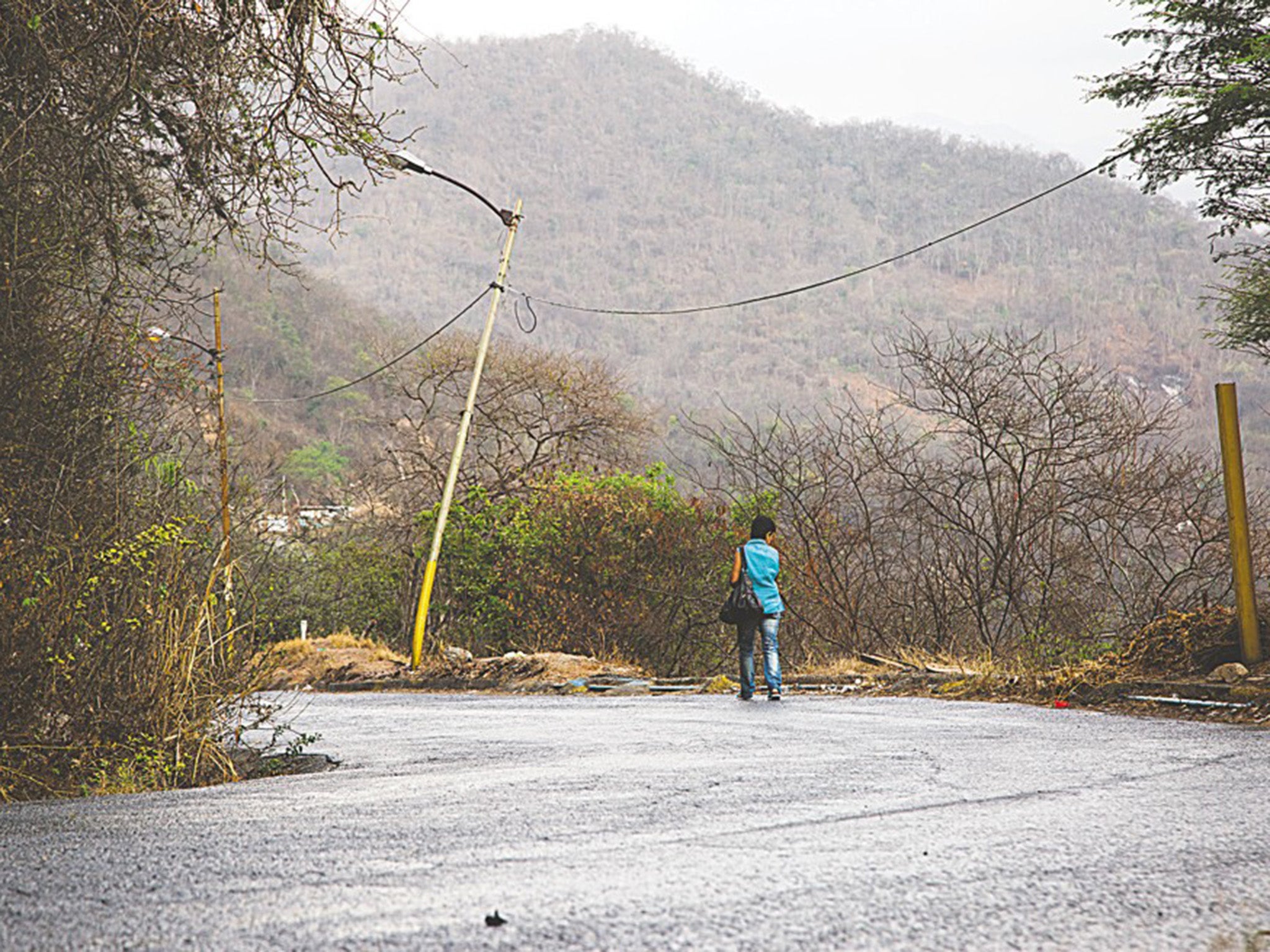
During a campaign stop in the eastern Guayana City on Wednesday, Maduro conceded his government “had made mistakes”. But he blamed the country’s crisis mostly on outside forces and domestic enemies and proclaimed the nation’s socialist revolution would see Venezuela through to better days.
“Thanks to the social system created by the revolution, the people are protected and prepared,” he says. “We have a lot more to do, and that’s why we need victory.”
***
In her cement block home in eastern Caracas, Zulay Perez, 63, walked into her kitchen and turned on the tap.
“See? Nothing,” she says. “No water. No water at all.”
For Venezuelans like Perez – the wife of a factory worker – life was never easy. But in the past, she says, the couple would get running water at least a few days each month. This year, they have had water once – and even then for just a few hours. The shortages have spread in 2018, reaching into middle-class and wealthy neighbourhoods, prompting hundreds of spontaneous, if small, protests.
The government blames a drought, as well as electricity outages partly attributed to sabotage by opposition activists. But community groups say the cause of the damage is more systematic – a combination of corruption, the flight of specialised workers from the country and the difficulty of buying imported spare parts in a nation were the currency is so worthless that you could wallpaper a building with money notes for less than the cost of paint.
In past years, Perez says, water would run frequently enough to fill up the big blue tanks the couple keep in a corner. Now she goes outside, to a gutter where stray dogs defecate, to collect water that she boils and uses for cleaning. For drinking and bathing, her husband carries empty bottles to the home of her sister, who has larger cisterns and has been somewhat more fortunate with service.
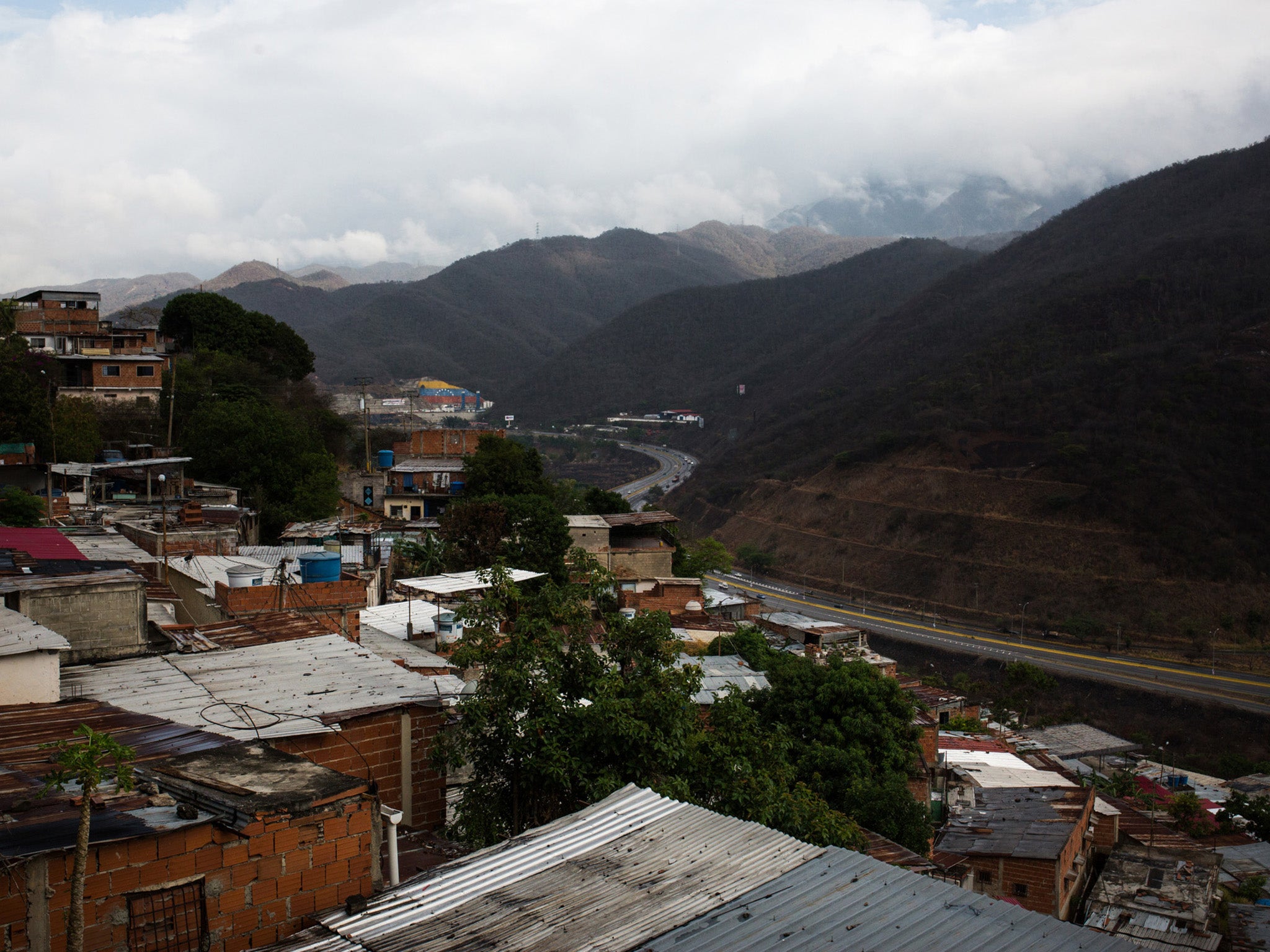
The water crisis is one symptom of the failing state around her. Another is the lack of food. Perez’s daughter, a public school teacher, collected back wages last week. The family used the money to buy a rare treat – a dozen eggs. Skyrocketing inflation means they cost 480,000 bolivares – the equivalent of nearly one week of her husband’s salary.
Perez, nearly emaciated, has lost 17 pounds in the past year.
“I feel hopeless,” she says, adding that she fears the government will ensure a Maduro victory on election day, no matter what voters do. “We want change, but I don’t think we’ll get it.”
***
Inside Caracas University Hospital – one of the capital’s largest – the first thing that hits you is the smell.
“We’ve had no water for two weeks, and it just came back today,” says a 29-year-old doctor who guided two journalists through its dim halls. The doctor spoke on the condition of anonymity to avoid reprisals, since the hospital’s administration is pro-government.
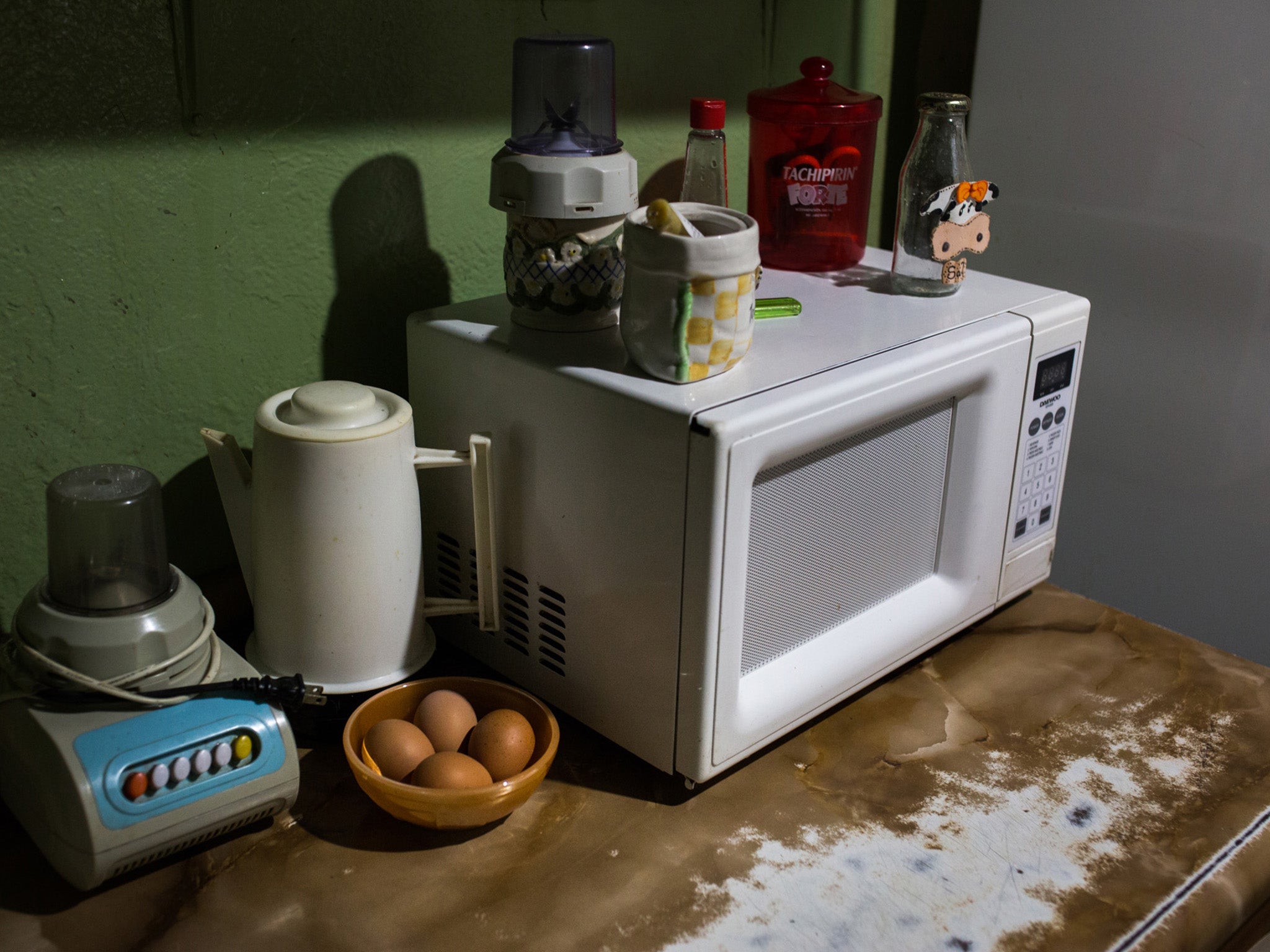
“For a while,” she says, “some toilets couldn’t be flushed.”
Medical shortages have gripped Venezuelan for several years. But things have markedly worsened over the past few months as water and power have become more intermittent. Three weeks ago, the electricity went out for a whole weekend, with generators able to power only the emergency ward, surgery rooms and the intensive care unit.
As Venezuela has rocketed into hyperinflation, drugs and supplies – almost all of them imported – are increasingly unaffordable.
Malaria was once rare here. Now the hospital is receiving almost 40 infected patients a day. The worst cases end up in the infectious disease ward, which on the recent visit was loaded with patients suffering from preventable or treatable illnesses that have run amok in a weakened population.
Lethargic measles patients filled a room marked “isolation”. There was a round hole in the door from a missing knob, allowing the air inside to easily filter into a hallway. The corridors echoed with the coughs of skeletal HIV patients, some of whom are suffering complications from tuberculosis.

There will be fewer and fewer doctors to treat them.
“A big part of our newly graduated medical students are leaving the country right away. I’d say 90 percent of them,” says Oscar Noya, a doctor who heads the hospital’s malaria department.
***
On a recent afternoon, Leon Avila, a 54-year-old security guard, was waiting at a bus stop at the bottom of a hill in Guarenas, a slum 18 miles east of Caracas. To reach his home at the top, he would normally travel by public bus.
But of the 25 buses that used to ply the route five years ago, all but two are out of commission because of a lack of affordable spare parts. In Venezuela these days, a single tyre can cost 100 times what a bus driver makes in a month. Even the two buses currently running are suffering from breakdowns – so frequent that residents have been forced into a relatively novel type of transit – cargo trucks, whose drivers charge them a fare.
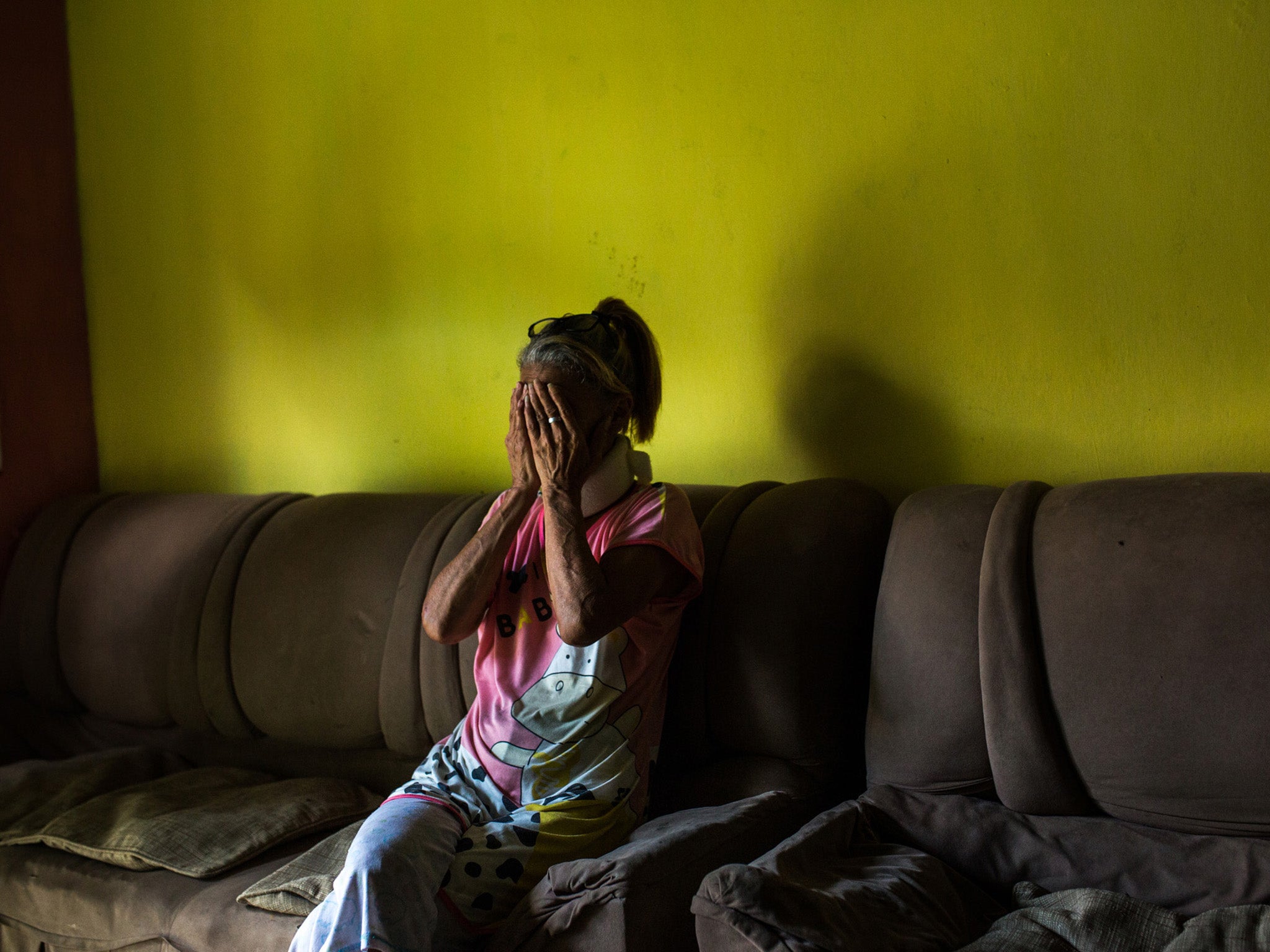
“Travelling like cargo is now our day-to-day life,” Avila says.
In Caracas, 70 per cent of the city’s 18,000 buses are not operating. The rest work only intermittently, says Hugo Ocando, a transportation union leader. "Ten to 15 per cent have gone out of order this year alone," he continued.
After a midsize cargo truck pulled up to Avila’s bus stop, he piled into the back with a mob of others.
“Stop boarding people! We’re getting asphyxiated!”, someone shouted in the back.
“This is a henhouse!”, shouted another.
In moments, more than 30 people were crammed inside, holding on to ropes to keep from falling. Much of the cabin’s interior was dark. There were no windows, with the only light and air funnelling through the open back doors.
“It’s like we’re animals,” Avila says.
***
The mainstream opposition is boycotting Sunday’s vote, citing a lack of guarantees of a free and fair election. Maduro’s government has banned some key opposition figures from running, kept others behind bars and prompted at least one to seek asylum at the Chilean Embassy in Caracas.
Maduro, 55, will still face two main challengers: Henri Falcon, a former governor, and Javier Bertucci, an evangelical pastor. But despite growing international pressure, including an escalating list of US sanctions, few here believe that Maduro is prepared to lose. The government was widely accused of fraud in an election last year for an all-powerful legislative body.
Yet with so many Venezuelans expected to skip the vote, Maduro may genuinely edge out his opponents Sunday. According to the Delphos polling firm, Maduro and Falcon are neck and neck among likely voters, with Maduro at 38 percent compared with Falcon at 37 percent. Bertucci is polling in third, with 20 percent support.
Critics say some Venezuelans may vote for Maduro out of fear – of losing state jobs or government-subsidised food baskets.
Maduro says they will vote for him out of national pride.
“When you ask Donald Trump who’s going to win in Venezuela, even he says, ‘Maduro,’” the Venezuelan leader said at a rally last week. “And why are we going to win? Because we are the fatherland, of history, of dignity.”
© The Washington Post
Join our commenting forum
Join thought-provoking conversations, follow other Independent readers and see their replies
Comments